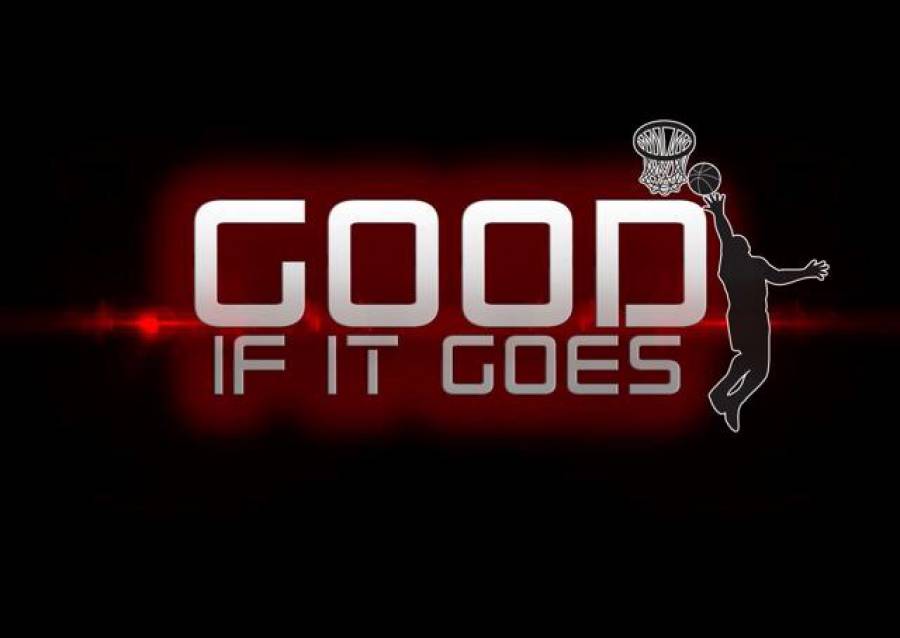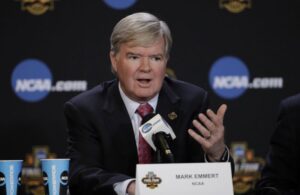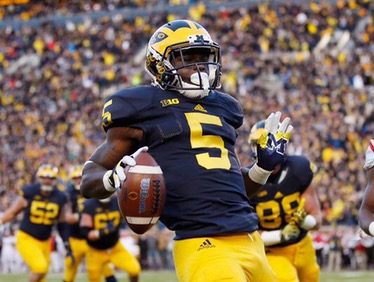- Taylor Swift – Style – Qwanny’s Version | Q3 Media Super Bowl Ad
- 10 Greatest Wide Receivers that NEVER Won a Super Bowl
- 10 Best Christmas Day Performances in NBA History
- The Beast: The Final Fight | Documentary | A Qwality Film
- The Beast: The Final Fight Trailer
- The Crush Podcast: Broncos Lose Again, Kelce the Clout Chaser
- Qwality Sports: Ben Gordon Interview, Talks Time in NBA and His Workout Mindset
- AFC South Sports Betting Preview
- UFC London Aspinall vs Blaydes
- Take A Guess: The Sports Trivia Game Show Hosted by DeQwan Young | Episode 29
What’s Going On Thinks Of The Children
- Updated: April 8, 2016

Friday, the NCAA voted to ban satellite camps. Brett McMurphy reported that the SEC, Pcac-12, Big 12, ACC, Sun Belt, and Mountain West all voted to ban the camps, while the Big Ten, American, Conference-USA, and MAC all voted against banning them. Since the Power 5 conferences’ votes count for 2 votes each, the score there is 10-5. Here’s Jim Delany’s reaction:
Big Ten’s Jim Delany on the end of satellite camps: https://t.co/6qnyv3XPhK pic.twitter.com/VguLqPcldD
— Nicole Auerbach (@NicoleAuerbach) April 8, 2016
I know that’s an underwhelming response, but let’s not be too hard on Jim. After all, he’s got a lot on his plate, what with attempting to bring Mercer into the Big Ten, probably. Hey, gotta get BTN into Atlanta, right? Seriously, why is this jabroni in charge of anything?
I get why the SEC, Pac-12, and Big 12 would vote to ban the camps. There are enough schools in locations with tons of top recruits to get the legislation to pass in those conferences. But the ACC? That makes absolutely no sense. They, along with the SEC, have rules against their coaches guest coaching at other schools/camps, but that doesn’t make any sense, either. I get Florida State, Miami, and Clemson wanting to keep other teams out of their backyard, and Pat Narduzzi’s an idiot and seems like exactly the type of person willing to cut off his nose to spite his face. He’s the dope who attempted to claim that spending a week hammered was an integral part of the college experience. As little sense as it makes for the ACC to vote to ban, which is none, it makes even less sense for the Sun Belt and Mountain West to vote against the camps. It’s the non-Power 5 schools that are going to be hurt by this the most. When a Power 5 coach holds a satellite camp, he might find a few kids who can play for his program, but most of the attendees won’t be up to the standard. Those kids may be up to the standard of a mid-major, though. And the camp allowed them to get noticed. In fact, several college athletes, former college athletes, and future college athletes took to Twitter to voice their disapproval of the ruling. Here are a few reactions:
My first 6 offers were from satellite camps , that’s messed up — Jhamon Ausbon (@TheJhamonAusbon) April 8, 2016
Satellite Camps might have been the only way some athletes could be seen by college coaches and now the NCAA wants to take that away… wow!
— Tate Martell (@TheTateMartell) April 8, 2016
Hmm no more satellite camps for high school kids trying to go to next level? I’m going to Penn State because of a satellite camp — Barbir #8⃣ (@Alex_Barbir) April 8, 2016
Smh… That’s how you get yourself out there https://t.co/cOtrJgzWD7
— Gio Fauolo (@Gdollaz44) April 8, 2016
No realization of the fact that Satellite camps allow underprivileged players the opportunity to be recruited by schools outside their state — Joe Kerridge (@JKerridge36) April 8, 2016
Think about this for a minute. This doesn’t help most schools, and it certainly doesn’t help any kids. By allowing this to go through, the NCAA has prioritized the interests of a small group of adult millionaires over those of the kids, the people putting in the real work here, the people who actually have the talent here, the people without whom this messed-up business model would not exist. This is low even for them, and these are people who used to say that cream cheese for a bagel was an impermissible benefit. And they still haven’t done anything about coaches oversigning recruiting classes and forcing players out of their programs a year or two into their careers. (Lookin’ at you, Saban!) Meanwhile, they also deregulated electronic contact between players and recruits, so the potential argument that satellite camps were too much of a burden for the kids or made recruiting too intensive, which would have been a really stupid argument in the first place, now goes completely out the window, although I’m sure some hick will attempt to make it anyway. (Also, I’m sure it’s only a matter of time before the NCAA reverses course and bans phone calls and texts because some hillbilly coach, or Pat Narduzzi going after an ear this time, gets upset that that technology hasn’t made it to the south yet.) So, yeah, coaches can’t travel to evaluate players and give athletes who otherwise may not have been noticed an opportunity to showcase their talents and get noticed, but they can totally bug a high-schooler via telephone as much as they’d like. Does this make sense to anybody? Okay, yes, SEC, it makes sense to you, but how about to anyone with a brain? No? Didn’t think so.
The good news is that there’s a good chance this will eventually be reversed, but first, to borrow a phrase from Andrew Brandt, there will be lawyers. Notre Dame AD Jack Swarbrick:
“The NCAA does not have a very good track record of limiting, without losing an antitrust lawsuit, economic opportunities for coaches,” Swarbrick said Tuesday at the College Football Playoff meetings. “So they should be treading very lightly. The perception is these are school opportunities. A lot of these are coach opportunities purely. Imagine a rule that said, as was introduced years ago, coaches couldn’t do national televised advertising because it created a recruiting advantage. … I wouldn’t want to defend those lawsuits.”
Swarbrick has a law degree from Stanford and was a practicing attorney for 28 years, eventually making partner at a large firm, prior to becoming AD at Notre Dame, so he knows what he’s talking about here. Also from that CBS Sports article:
“Camps have been in the past a challenging thing to monitor and keep up with and we’ve been very successful in our league of doing that so let’s don’t create a new paradigm for everybody,” Auburn athletic director Jay Jacobs said Tuesday. “Plus our league has done pretty well as far as recruiting goes as it is. It seems to benefit some schools that may be in the past had a history of success and now don’t so they’re trying to grow their brand a little bit more. For us, we like where we are.”
First of all, Jay, as long as we’re talking about monitoring things, you wanna do anything about the boosters in your conference paying recruits? Now look at what he’s saying here. Translated from slimeball to English, that reads: “Our coaches didn’t want to have to work harder in recruiting, so we think the best option here is to take opportunities away from a lot of kids.” To which the NCAA replied, “Okie-dokie, sounds good to us.” That’s absolutely sickening. The NCAA’s business model is bad enough as it is, but to do this and deprive kids of the opportunity to get themselves noticed is a joke. It’s time to stop pretending you’re thinking about the children and start actually doing it.
Twitter: @KSchroeder_312
E-mail: schroeder.giig@gmail.com


